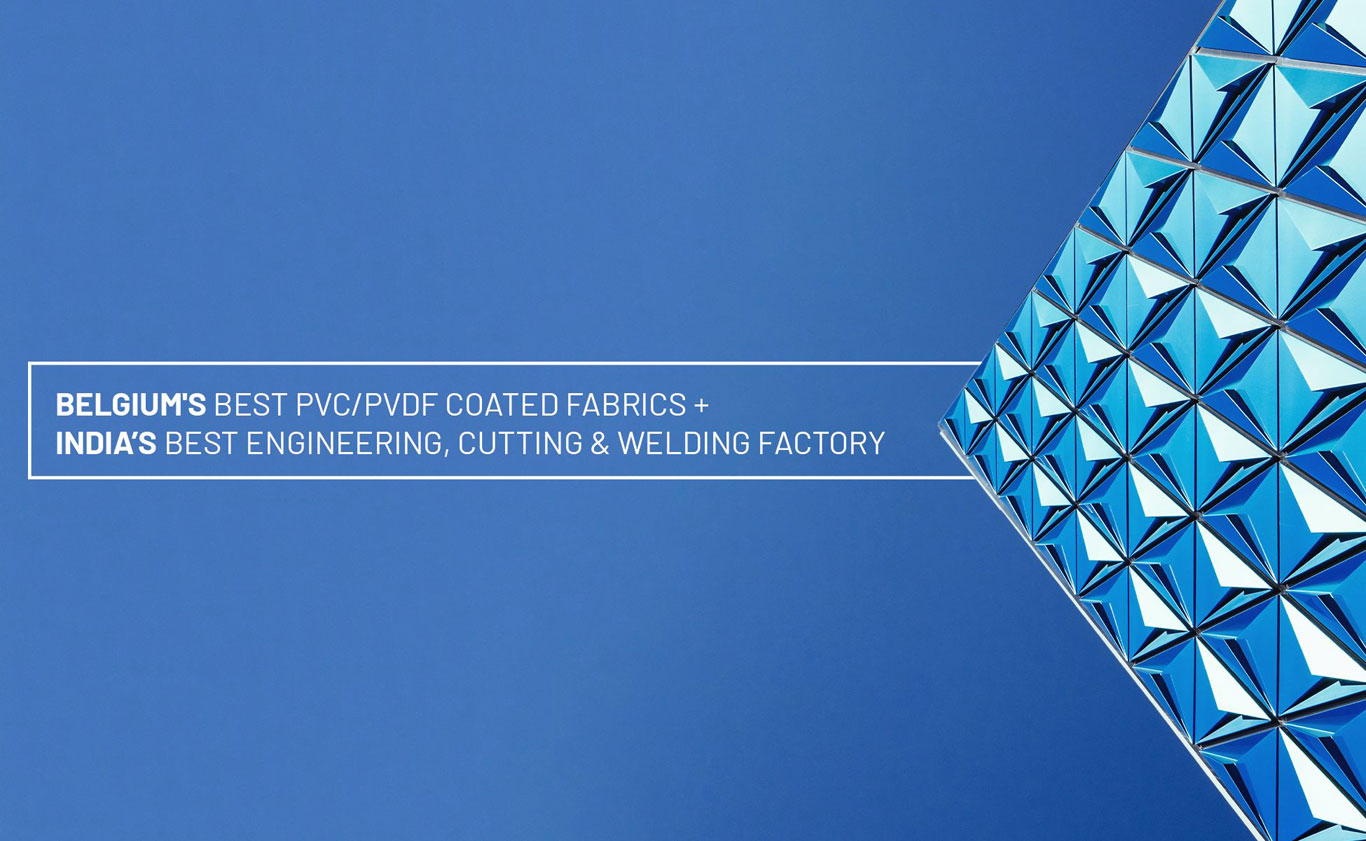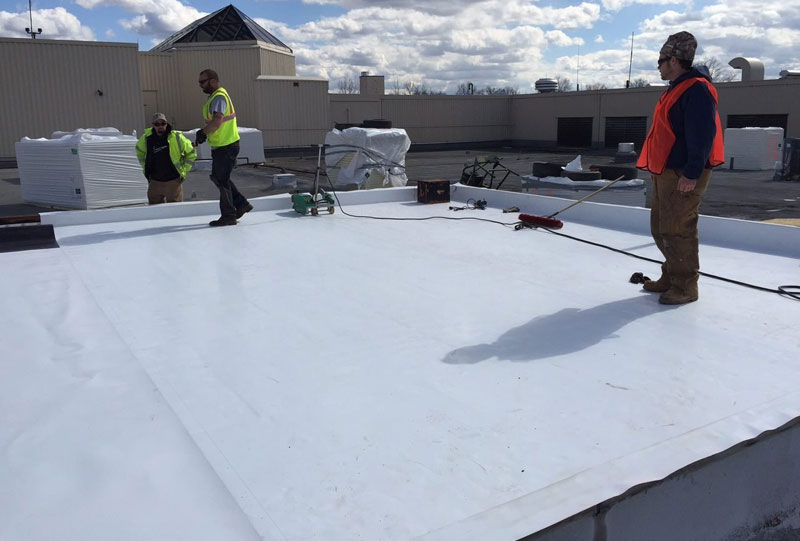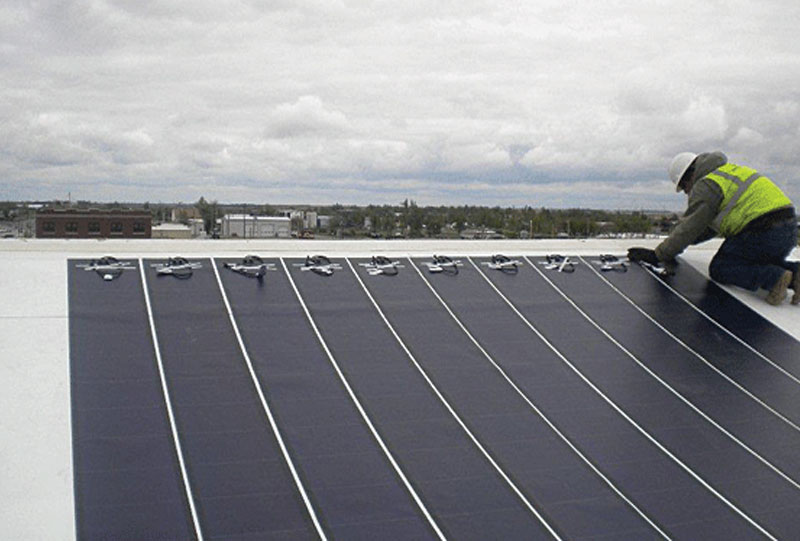
Technical Membranes for Roofing
 Membrane roofing is a type of roofing system for buildings and tanks. It is used on flat or nearly flat roofs to prevent leaks and move water off the roof.
Membrane roofing is a type of roofing system for buildings and tanks. It is used on flat or nearly flat roofs to prevent leaks and move water off the roof.
Membrane roofs are most commonly made from synthetic rubber, thermoplastic (PVC or similar material), or modified bitumen.
Membrane roofs are most commonly used in commercial application, though they are becoming increasingly more common in residential application.
Lightweight roof membranes in large sports facilities require excellent weather resistance, making fluoropolymers the ideal material solution. Roof membranes for fierproof buildings are mainly composed of fluoropolymer and fiberglass cloth.
Types of Roof Membranes for Flat or Low-Slope Roofs:
Flat roof membranes are used in both residential and commercial roofing projects. In residential, it is used predominantly for large apartment buildings, garage roofs, and small extensions. It is also increasingly used for larger main roofs in single-family housing with modern designs that integrate flat roofs.
Most large commercial projects such as apartments, warehouses, sports facilities, schools, and hotels utilize membrane roofing on flat roofs. Most of these commercial buildings require roof access for mechanical systems or they have occupied roof terraces, making membrane roofs an ideal cost effective solution.
The two most common types of flat roof membranes are EPDM and PVC. While modified bitumen is also still used, most owners are moving away from asphalt based products due to the environmental and health hazards.
Quality, efficiency and safety
- Perfect adhesion on the surface
- Automatic lamination in-line or off-line
- No tearing during removal
- No stains or residues left
- All weather-proof and high temperatures resistant worldwilde
- Easy membrane unwinding, no liner needed
- Easy film removal, one man only
- Special formulated backing film to reduce slipping when working on roof

TENSILE MEMBRANE Applications
- Architectural and Technical Textiles for Textile Architecture Solutions
- Coated Fabrics for Event Halls
- Coated fabrics for Industrial Halls
- Coated Fabrics for Light Weight Construction Halls
- Coated Fabrics for Sports Halls
- Technical Membrane for Hanging Ceilings
- Technical Membrane for Liners
- Technical Membrane for Roofing
- Technical Membrane for Suspended Ceilings
- Tensile Membrane Structures for Restaurants
- Tensile Membrane Structures for Air Supported Halls
- Tensile Membrane Structures for Car Shades
- Tensile Membrane Structures for Interior Architectural Textiles
- Tensile Membrane Structures for Modular Industrial Constructions
- Tensile Membrane Structures for Parking Shades
- Tensile Membrane Structures for Roof Covers
- Tensile Membrane Structures for Shelter
- Tensile Membrane Structures for Solar Protection
- Tensile Membrane Structures for Sport Halls
- Tensile Membrane Structures for Textile Facades
Get Your Free Quote Today!
